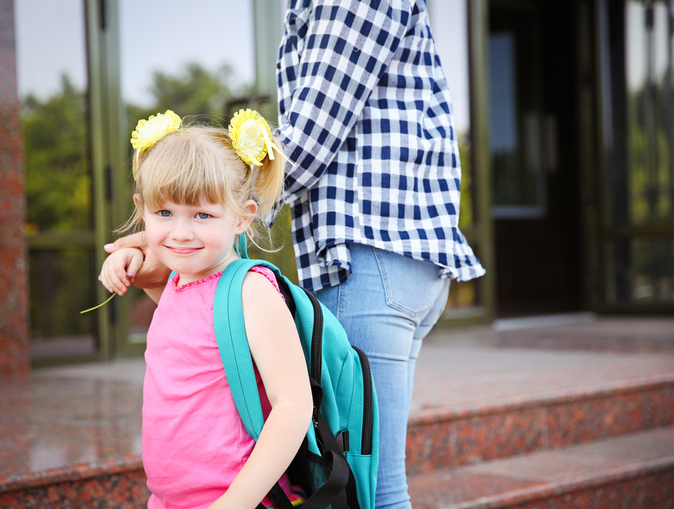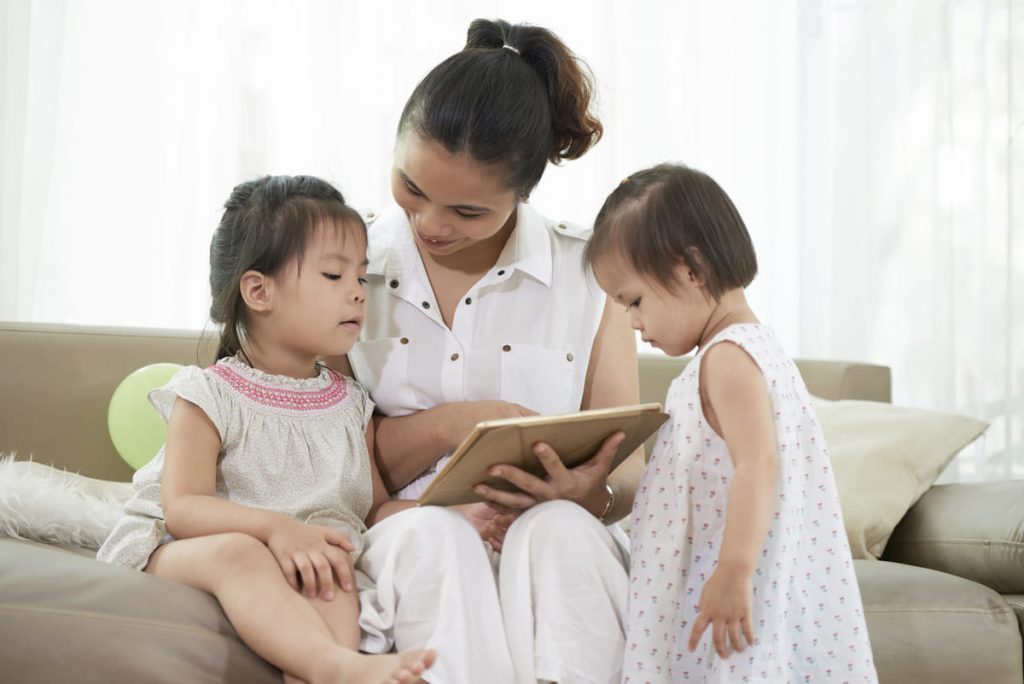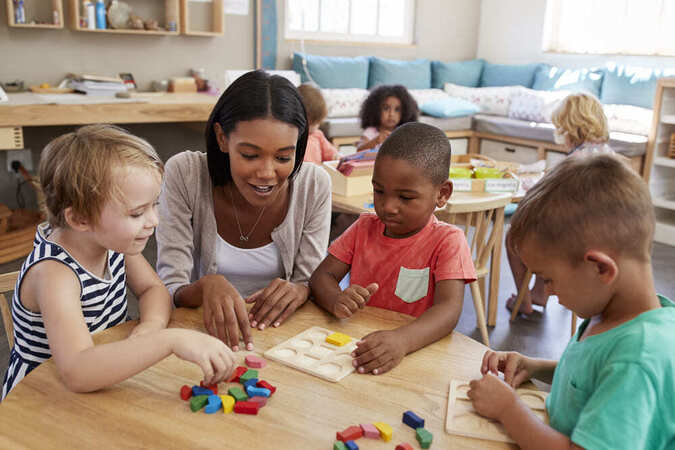Parenting
Preparing your child for the first day of kindergarten

Starting the school year in kindergarten is a significant milestone in the life of a child, marking the beginning of their formal education and a new chapter in their development. Preparing your child for their first day of kindergarten will not only help to alleviate their anxiety but will also foster a sense of independence and establish a positive mindset towards learning.
KEY TAKEAWAYS:
- Familiarizing your child with their new school environment, including meeting their teacher and introducing them to books about school routines and expectations, provides comfort and alleviates anxiety.
- Practicing school-related tasks and mastering basic skills such as packing a backpack, dressing independently, tying shoelaces, and recognizing letters builds confidence and sets the stage for classroom success.
- Encouraging social interactions, playdates, and role-playing self-care skills like restroom use and handwashing promotes independence, develops social skills, and fosters a lifelong love of learning.
Essential Strategies for Preparing Your Child for Kindergarten

Preparing your child for their first day of kindergarten is a pivotal step towards early childhood education and ensuring a smooth transition into formal education. Implementing the right strategies can not only alleviate potential anxieties but also set the stage for a positive and fruitful learning experience.
Creating a Supportive and Familiar Environment
A positive and comforting home atmosphere, paired with a gradual introduction to the new school environment, can significantly alleviate any worry your child might have about their first day of kindergarten. This can reduce their anxiety, foster independence, and establish a positive mindset towards learning.
It is the right course to create a supportive environment at home and familiarize them with daily routines, social skills, and basic academic concepts.
Taking the time to adequately prepare your child will set them up for a successful and enjoyable start to their educational journey. In order to prepare your child for the first day of kindergarten, it is essential to lay a strong foundation of familiarity and comfort.
This can be achieved by introducing them to:
- The school environment
- Their teacher and classmates
- Familiarizing them with the daily activities and routines
Establishing Routines and Basic Skills
In addition to creating a supportive environment, it is also necessary to establish a routine for your child before they start kindergarten.
For example, you can teach your child basic skills such as:
- Using the restroom independently
- Opening their lunchbox
- Tying their shoes
As a result, this will help them develop good habits and a sense of structure and responsibility. Along with that, these skills will give them confidence and independence, making the transition to kindergarten smoother.
Fostering Communication and Collaboration
One effective method of preparing your child for kindergarten is by engaging in open communication with their kindergarten teacher.
This can be done by attending orientation sessions or scheduling a meeting with the teacher to discuss your child’s specific needs and concerns. Additionally, it can be helpful to share a true story of a successful kindergarten transition.
For example, you could talk about a child who was initially apprehensive about starting kindergarten but with proper preparation and support from their family and teachers, they quickly adapted and thrived in the new environment.
This story can serve as inspiration for both you and your child, showing them that they too can have a positive and enjoyable experience on their first day of school bus or of kindergarten.
By doing so, you will gain insight into the curriculum, expectations, and any additional support your child may require. This collaboration will also foster a supportive relationship between you, the teacher, and your child, ensuring a smooth transition.
Visit the school and meet the teacher

Prepare your child for the first day of kindergarten by visiting the school and getting to know their teacher. This initial step is important for a smooth transition and building a foundation for a successful educational journey.
Consider the following points when you visit the school and meet the teacher:
- Take a tour of the school and organize an in person visit to familiarize yourself and your child with the layout and facilities.
- Introduce your child to their teacher and allow them to establish a connection.
- Discuss the classroom routines, expectations, and any specific information relevant to your child’s needs.
- Use this opportunity to ask any questions or address concerns you may have about the kindergarten experience.
Furthermore, it can be helpful to share a story about a child who embraced the first day of kindergarten after visiting the school and meeting the teacher.
Read books about school preparedness
Reading books to help your child prepare for kindergarten is essential for their school readiness. Exploring the topic of school preparedness through literature can provide valuable insights and calm any anxieties they may have.
In addition to that, reading books about school preparedness can also introduce your child to new vocabulary and expand their knowledge about school routines, rules, and expectations. It can serve as a fantastic bonding activity between you and your child, cultivating a love for reading and learning.
Here are three key points to consider:
1. Choose Relevant Books
As part of school supplies, opt for books that specifically address the transition to kindergarten. These books can help your child relate to the experiences of other children and understand what to expect when school begins.
- The Night Before Kindergarten
- The Kissing Hand
2. Discuss Emotions And Challenges
Use the books as starting points for conversations about emotions, friendships, and challenges they may encounter in kindergarten. This can help your child develop resilience and problem-solving skills.
3. Encourage Active Engagement
While reading, encourage your child to ask questions, make predictions, and relate the story to their own experiences. This interactive approach fosters critical thinking and enhances their understanding of school preparedness.
A True Story: A parent started reading books about school preparedness to her daughter during the summer break before starting kindergarten. Through these books, her daughter better understood what to expect, alleviating her anxiety. This preparation helped her transition smoothly into kindergarten and thrive academically and socially.
Practice getting ready for school

Preparing your child for the first day of kindergarten can be both exciting and overwhelming. To ensure a smooth transition once school starts, it is crucial to practice essential skills that will help your child be prepared.
Below is a simple 3-step guide to help you practice readiness for school:
1. Consistent Routine
Create a consistent daily routine that mimics a school schedule. This involves:
- Setting regular wake-up and bedtimes
- Planning structured meals/snacks
- Allocating dedicated time for learning, play, and rest
As a result, your child will understand the importance of a schedule, making it easier for them to adapt to the kindergarten routine.
2. Encourage Independence
Teaching your child self-help skills is vital for their success in kindergarten. Practice activities that promote independence, such as:
- Getting dressed
- Using the toilet
- Tidying up after playtime
Additionally, encourage your child to express their needs and thoughts verbally, as effective communication plays a significant role in classroom interactions.
KinVibes Pro-Tip: Be patient, maintain a positive attitude, and celebrate small achievements along the way. Your support and encouragement will instill confidence in your child as they embark on their educational journey.
3. Enhance Social Skills
Kindergarten is a place where children learn to interact and engage with their peers. Help your child practice social skills by:
- Organizing play dates
- Joining community activities
- Enrolling them in preschool programs
This will provide opportunities for your child to develop sharing, listening, and cooperation abilities, enhancing their kindergarten experience.
In addition to the above steps, it is crucial to remember that each child is unique and may require varying levels of practice.
True History: Throughout history, parents have always strived to prepare their children for school. From the earliest days of formal education, parents recognized the importance of instilling foundational skills and values in their little ones.
Today, with the advances in educational research and understanding, we have a clearer understanding of how practicing readiness for school positively impacts a child’s academic and social development.
Master basic skills

Experts recommend fostering foundational skills before starting kindergarten to ensure a smooth transition. Therefore, it is important to create a conducive learning environment at home and engage your child through activities that cater to their development needs.
Here are some essential basic skills to focus on:
Develop Fine Motor Skills: Engage your child in activities promoting hand-eye coordination, such as coloring or using scissors.
Enhance Cognitive Abilities: Encourage problem-solving through puzzles, memory games, and storytelling.
Promote Social Skills: Organize play dates or enroll your child in group activities to foster communication, sharing, and turn-taking among other students.
Boost Language Development: Engage in conversations, read books daily, and introduce new vocabulary words to expand their language skills.
Establish Self-Help Routines: Teach your child basic tasks like dressing themselves, using the bathroom independently, and following simple instructions.
Below is a table that serves as a quick reference guide for parents to ensure they have covered all the necessary bases in preparing their child for the first day of kindergarten.
| Skill/Activity | Description | How to Practice |
|---|---|---|
| Fine Motor Skills | Hand-eye coordination for writing, cutting, etc. | Coloring, using scissors |
| Basic Academic Skills | Recognizing letters, numbers | Flashcards, educational games |
| Social Skills | Sharing, taking turns | Play dates, group activities |
| Self-Care Skills | Dressing, bathroom use | Practice at home |
| Emotional Regulation | Handling new situations | Role-playing, storytelling |
Parents who have implemented these strategies have reported their children adapting seamlessly to the kindergarten environment, displaying improved communication skills and academic readiness.
Role-play self-care skills

Role-playing is a valuable tool for teaching children self-care skills, empowering them to take care of themselves independently. Utilizing imaginative play and incorporating props can enhance the effectiveness of role-play in teaching self-care skills.
Along with that, it is essential to consider the unique details of each child’s development and tailor the role-play scenarios accordingly.
You can consider these key self-care skills that can be effectively taught through role play:
Personal Hygiene
Role-play scenarios can simulate daily routines like brushing teeth, washing hands, and bathing, cultivating good hygiene habits.
Dressing and Grooming
Through fun role-playing, children can learn how to dress appropriately, tie shoelaces, comb their hair, and groom themselves effectively. Parents can take their kindergarten-to-school shopping and let the child pick out their new backpack, pencil case, lunch box, and water bottle.
Eating Habits
Children can use role-play to understand the importance of proper table manners, maintaining a balanced diet, and acquiring the skills needed to feed themselves independently.
Keep in mind: Encourage children to take turns playing different roles during role play scenarios to foster empathy and a deeper understanding of others’ perspectives.
Safety Awareness
These role-play scenarios provide an opportunity for kindergarten teachers to teach children about safety measures, such as crossing the road, using seat belts, and avoiding dangerous objects.
Emotional Regulation
By engaging in role-play, children can develop emotional intelligence and learn coping strategies for dealing with different emotions and challenging situations.
Problem-Solving
With this practice, role-playing allows children to practice problem-solving skills by presenting them with various scenarios where they can brainstorm solutions and make decisions.
Get Social

To help your child prepare for their first day of kindergarten, it is essential to focus on their social skills. Fostering social interactions will help your child form meaningful friendships and acquire crucial communication and collaboration skills.
- Attend story time or activity sessions at the local library
- Arrange play dates with neighbors or friends and new students
- Explore nature and educational programs
- Encourage family gatherings
Additionally, establishing daily routines at home can also assist in their social development, as they will learn how to navigate different social situations with ease.
KinVibes Pro-Tip: To help your child get social, encourage them to participate in group activities or hobbies that align with their interests.
This will not only allow students to meet new friends but also provide them with a sense of belonging and the opportunity to explore their passions.
Some Facts About How to Prepare Your Kid for the First Day of Kindergarten:
- Visiting the new school and meeting the teacher can help ease your child’s fears and prepare them for the first day of kindergarten.
- Reading books about school can help your child feel more prepared and excited for kindergarten.
- Practicing morning routines and going over the daily schedule can help your child anticipate what to expect on the first day of school.
- Having basic skills like counting, recognizing their name, and using child-friendly scissors can make your child feel more comfortable in kindergarten.
- Teaching your child self-care skills like going to the bathroom, dressing, and washing their hands will help them adjust to the expectations of school.
FAQs about How To Prepare Your Kid For The First Day Of Kindergarten
How can parents prepare their children for the first day of kindergarten in terms of emotional skills?
By teaching them simple phrases like “Please, can you help me?”. This helps the child know who they can go to for help if needed. Additionally, parents can model:
- Turn-taking
- Sharing
- Practicing good manners
Is it important for parents to visit their child’s new school before the first day of kindergarten?
Yes, visiting the new school before the first day of kindergarten can help the child feel prepared and alleviate any fears or anxiety they may have. It also helps the child become familiar with the school environment, such as knowing where the bathroom is and where to put their belongings.
What are some recommended book choices to help prepare a child for kindergarten?
Some recommended book choices to help prepare a child for kindergarten include:
- “The Kissing Hand” by Audrey Penn
- “Kindergarten, Here I Come!” by D. J. Steinberg
- “Wemberly Worried” by Kevin Henkes
- “David Goes to School” by David Shannon
How can parents mentally prepare their child for the shift in routine when starting school?
By practicing morning runs and going over the daily schedule with their child. This helps the child anticipate and know what to expect in their new environment, reducing surprises and uncertainty.
What basic skills should children have before starting kindergarten?
These skills help children feel more comfortable and set them up for success in kindergarten class and beyond. Children should have basic skills such as:
- Being able to count to ten
- Recognize their name
- Use child-friendly scissors
- Hold a pencil
- Dress themselves
How can parents help their child develop self-care skills before starting kindergarten?
Most parents can help their child develop self-care skills before starting kindergarten by practicing tasks such as:
- Going to the bathroom
- Dressing
- Washing hands
- Opening and closing lunchboxes and backpacks
It is also important for parents to teach their child proper hygiene practices like sneezing or blowing their nose into a tissue and washing hands properly.
Final Thoughts: EQUIP YOUR LITTLE ONE FOR KINDERGARTEN SCHOOLING
The kindergarten school day is crucial for their academic success and for cultivating a love for learning. By adequately preparing them for this milestone, you set a solid foundation to support their future educational endeavors. With a proper foundation, your child will be more engaged and motivated to learn, leading to greater academic achievements.
In essence, focusing on their social, emotional, and academic growth equips them with the essential skills and confidence needed to thrive in a classroom environment. Investing time and effort in preparing your child for kindergarten is an investment in their future success and well-being.
As you prepare your child for the exciting kindergarten journey, it’s not just the initial transition that matters. Building a positive relationship with your child’s teacher is a pivotal step in ensuring a smooth academic journey for your little one. A great way to foster this relationship is by expressing gratitude and appreciation for their hard work. If you’re wondering how to convey your sentiments effectively, check out our article on ‘Crafting the Perfect Teacher’s Day Letter: Tips and Ideas.’ It’s a beautiful way to show teachers you recognize and value their dedication and commitment.
